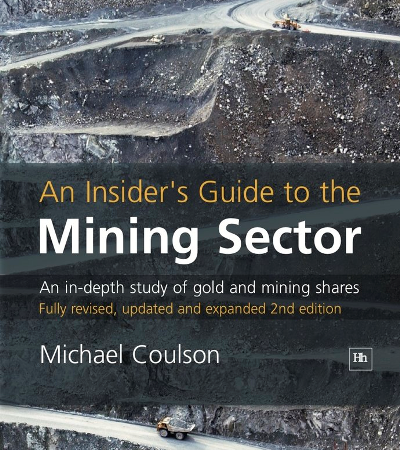To order a copy of An Insider’s Guide to the Mining Sector, please click here: http://www.harriman-house.com/book/view/66/investing/michael-coulson/an-insiders-guide-to-the-mining-sector/
United Kingdom: Little mining activity left
One of the most interesting business developments in recent years has been the relocation to and re-incorporation in the UK of a number of major mining companies. This has meant that four of the largest mining companies in the world – Rio Tinto, Anglo American, Xstrata and BHP Billiton – have UK incorporation; all are part of the FTSE100 share index. It is important to appreciate, however, that any UK mining operations that these companies have are very small. Indeed, mining in the UK is itself confined to speciality minerals such as china clay, sand and gravel and a rapidly contracting (though once powerful) coal mining industry.
The financial attractions of London
Therefore, with little mining activity in the UK the reasons for the presence of these companies in London is primarily financial. The banking system is seen as sophisticated and experienced in financing mining developments. Operating as a UK company means that the cost of capital can be much lower than in countries like South Africa. The historic links between the City of London and the mining industry mean that there is understanding of the risks and rewards of financing mining companies.

























